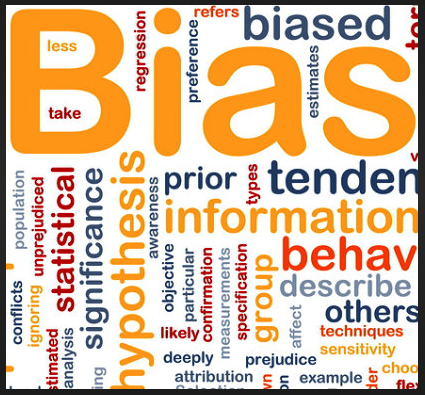Bias, a cognitive shortcut ingrained in human thinking, can wield both advantages and perils across various contexts. On one hand, bias serves as a mental efficiency tool, enabling rapid decision-making in a complex world. It helps us categorize information, make quick judgments, and navigate daily tasks with relative ease. Moreover, some biases are rooted in our evolutionary past, aiding survival by alerting us to potential dangers or aiding in the identification of allies.
However, the same cognitive mechanism that grants efficiency also harbors perilous implications. Bias can lead to distorted perceptions, reinforcing stereotypes and unfairly favoring certain groups while disadvantaging others. In the realm of decision-making, bias can hinder objectivity, influencing everything from hiring choices to medical diagnoses. This not only perpetuates inequalities but also erodes the quality of outcomes. In a societal context, bias engenders discrimination, fueling prejudices that marginalize individuals based on characteristics like race, gender, or socioeconomic status. Such biases have far-reaching consequences, undermining social cohesion and obstructing progress toward a just and inclusive world.
Balancing the advantages of bias-induced efficiency with the perils of distorted judgment requires conscious awareness and effort. Recognizing our biases, promoting diversity, and fostering critical thinking are crucial steps in mitigating the negative impacts while retaining the cognitive advantages that bias can offer.
In the intricate landscape of recruitment, the specter of bias casts a long and concerning shadow. Bias in hiring, a complex and unsettling issue, possesses the potential to permeate the very core of organizations, impacting both their internal dynamics and their external reputation. In a world where diversity, equity, and meritocracy are heralded as the cornerstones of progress, bias in the hiring process emerges as a formidable obstacle. It is a challenge that stretches beyond mere procedural fairness, encroaching upon the principles that underpin successful and innovative teams.
In the forthcoming discourse, we delve into the intricate web of bias in hiring—a phenomenon that can emerge in insidious ways, both conscious and unconscious. We examine how these biases, often rooted in factors such as gender, race, age, socioeconomic status, and even physical appearance, taint the objectivity of hiring decisions. Such biases manifest as assumptions about certain groups, tendencies to favor familiarity, and other prejudiced inclinations. The ramifications of these biases ripple throughout organizations, perpetuating inequalities, thwarting opportunities for marginalized groups, and impeding the holistic cultivation of talent and viewpoints. This passage explores not just the adverse consequences of bias in hiring, but also its corrosive effects on trust, morale, and organizational integrity. As the integrity of the hiring process is compromised by perceptions of bias, organizations encounter a host of challenges—from diminished morale among existing employees to reputational damage and legal repercussions. In response, the imperative to confront bias head-on becomes increasingly clear.
To effectively address bias in hiring, organizations must embark on multifaceted strategies that aim to recalibrate ingrained perspectives. This entails not only training hiring personnel to recognize and counter their own biases but also instituting objective evaluation frameworks and adopting anonymized recruitment practices. Embracing diversity in the decision-making process and subjecting recruitment procedures to periodic scrutiny are indispensable steps toward dismantling bias.
What is key:
In the grand scheme of organizational evolution, the eradication of bias in hiring emerges not only as a moral obligation but also as a strategic imperative. Organizations that wholeheartedly commit to impartial and unbiased recruitment methods stand to reap the rewards of a workforce rich in diversity and talent. As bias dissipates, it yields space for innovation, collaboration, and excellence to flourish within an inclusive environment. In the following sections, we delve deeper into the various dimensions of bias in hiring, its far-reaching impacts, and the strategies that can be employed to foster a transformational shift toward equitable and objective recruitment practices.
Bias in hiring is a complicated and deeply troubling problem that can have wide-ranging effects on both companies and people. Bias in the hiring process jeopardizes the values of equity, diversity, and meritocracy that are essential for developing a successful and creative staff.
Bias in recruiting refers to prejudices—whether unconscious or conscious that affect hiring decisions and frequently result in the unfair treatment of candidates based on attributes like gender, race, age, financial status, or even looks. This prejudice can show up in a variety of ways, such as implicit presumptions about the qualifications of particular groups or favoring individuals with similar histories or interests.
The consequences of bias in recruiting are manifold. It maintains current workplace disparities, restricts opportunities for underrepresented groups, and makes it difficult for an organization to access a varied range of abilities and viewpoints. This in turn stifles innovation, creativity, and adaptability—all critical to the long-term success of a firm.
Furthermore, bias undermines the legitimacy of the recruitment process, eroding trust among current employees and potential candidates alike. When individuals perceive bias in hiring decisions, it erodes morale, damages the company’s reputation, and may even result in legal challenges. This can lead to a toxic work environment, hinder collaboration, and ultimately impact the company’s bottom line.
To address bias in recruiting, organizations must implement comprehensive and proactive strategies. This includes training hiring managers and recruiters to recognize and counter their own biases, creating standardized evaluation criteria to ensure consistent assessments, and implementing blind hiring practices where possible. Utilizing diverse hiring panels and conducting regular audits of recruitment processes are also crucial steps in mitigating bias.
Ultimately, eliminating bias in recruiting is not just a moral imperative but also a strategic necessity. Organizations that commit to fair and unbiased recruitment processes stand to gain a competitive edge by harnessing the full potential of a diverse and talented workforce. By fostering an inclusive environment where individuals are valued for their skills and contributions rather than prejudiced assumptions, organizations can create a culture of innovation, collaboration, and excellence.
Blog Writer:
Navreet Kaur
Young Business growth accelerator, badgefree




